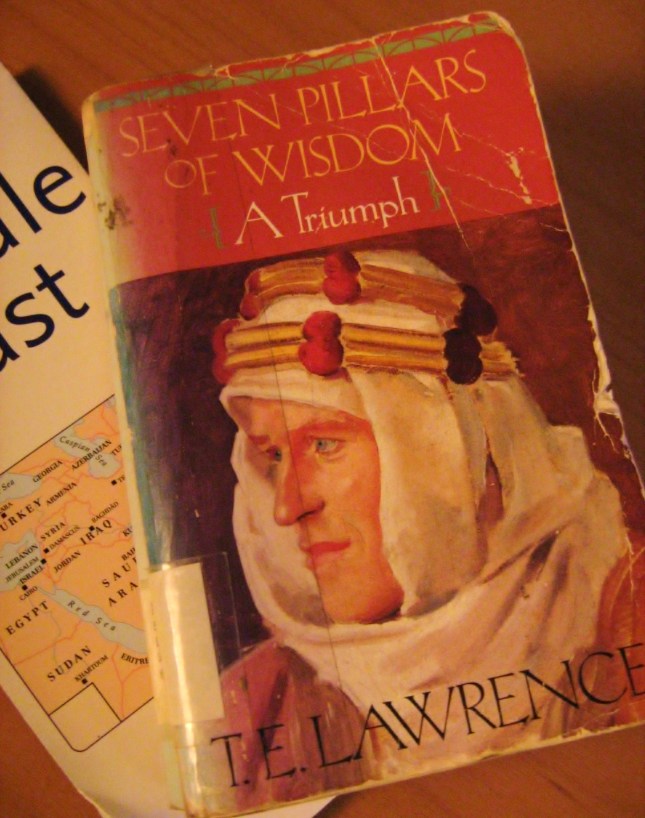Jerusalem was a squalid town, which every Semitic religion had made holy. Christians and Mohammedans came there on pilgrimage to the shrines of its past, and some Jews looked to it for the political future of their race. These united forces of the past and future were so strong that the city almost failed to have a present. Its people, with rare exception, were characterless as hotel servants, living on the crowd of visitors passing through. Ideals of Arab nationality were far from them, though familiarity with the difference of Christians at their moment of most poignant sentience has led the classes of Jerusalem to despise us all.
And such is T.E. Lawrence’s first entry on Jerusalem in his part travel journal/part history book, the “Seven Pillars of Wisdom.” As “Lawrence of Arabia” remains to date one of my all-time favourite films I thought it only right and proper that I finally seek out the words of the famous man himself. Sitting here at the heart of the Middle East with the desert heat from Saudi Arabia gently frying us all there really couldn’t be a better time or place to dig into this 700 page account of British military history which has, for better or worse, helped shape the Middle East as we know today.
Although the book describes events from over 90 year ago, its accounts of the Middle East and its people seem as poignant today as they did then. Take Lawrence’s description of Jerusalem (then part of Greater Syria – no Israel, no Palestine); the idea of a city held captive by the religious and nationalist forces of the past and the future, so strong that the city “almost failed to have a present” ring true today as it did then. You can’t escape the past embedded in this city at every turn, its people, the names of geographic locations, the street signs; they all speak of a city that has forever changed hands. And the future…? Well, we all have opinions about what that should look like. Either way living in the present is not something easily achieved in Jerusalem.
I wouldn’t have expected a military man such as himself to be able enthral the reader literary flare, but his account of the region, its geography, the Arab hierarchy, the sights and smell of Bedouin life and the blood and sweat of a desert campaign are compelling and colourful as anything the film masterly portrayed. The enjoyment is only increased by having David Lean’s film imprinted in one’s mind: each desert scene is accompanied by that rousing orchestral score; Alec Guinness provides the voice and subtle intonation of Prince Feisal; each and every Arab sherif is depicted by Omar Sharif’s and Anthony Quinn’s characters; and of course Peter O’Toole’s one-of-a-kind portrayal of Lawrence is laid out for you on every page. And to take things even further the whole reading experience is enhanced when, as I was this past weekend, sitting with a view out of the desert sweating it out in the 40° heat.
I shan’t bore you any longer with my fascination with time and life of T.E.Lawrence, for now, but I am sure to write another line or two once I finally finish the book, especially if it offers any more nuggets from yesteryear’s Palestine.
